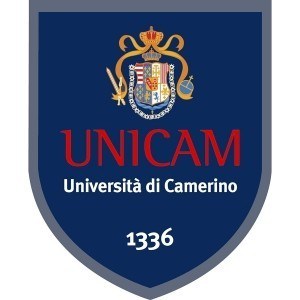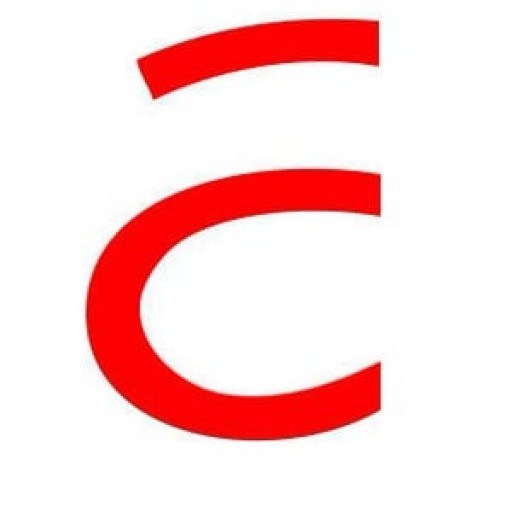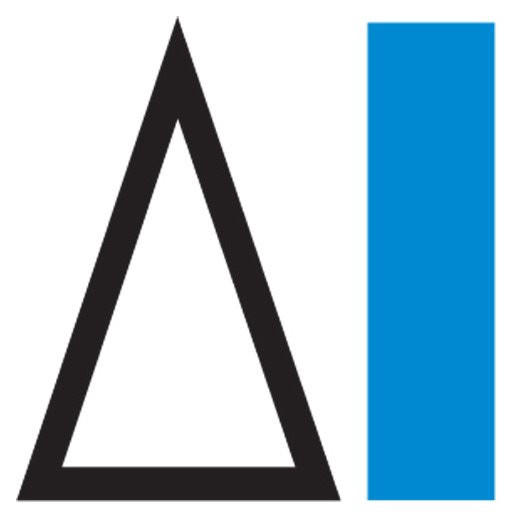Photos of university / #oxford_uni
The History of Design program at the University of Oxford offers an extensive exploration of the evolution of design across different cultures and historical periods. This interdisciplinary course combines insights from art history, cultural studies, and design studies to examine the ways in which design has shaped and been shaped by social, political, and economic developments throughout history. Students will engage with a diverse range of material, including architectural structures, decorative arts, industrial design, fashion, and digital innovations, analyzing their historical contexts and cultural significance. The program aims to foster a critical understanding of the aesthetic, functional, and symbolic aspects of design, encouraging learners to develop their analytical skills and appreciation for the cultural importance of design practices. Through a combination of lectures, seminars, and hands-on research projects, students will gain both theoretical knowledge and practical skills relevant to the study of design history. The curriculum emphasizes comparative approaches, international perspectives, and the influence of technological advances on design trends. The program also provides opportunities for students to undertake independent research, participate in collaborative projects, and engage with specialists in the field through guest lectures and workshops. Graduates of the program will be well-equipped to pursue careers in museums, galleries, cultural heritage organizations, academia, or the creative industries, contributing to the preservation and interpretation of design heritage. Given Oxford’s rich academic environment and access to extensive archival resources, students will have a unique opportunity to deepen their understanding of the historical significance of design, learn to critically analyze artifacts and visual culture, and develop sophisticated research skills. The program's flexible structure allows students to tailor their studies to specific interests, whether focusing on particular periods, regions, or types of design, preparing them for interdisciplinary careers that require a nuanced understanding of design’s historical trajectory. Overall, the History of Design program at Oxford provides a comprehensive, engaging, and challenging academic experience for anyone passionate about understanding the cultural dimensions of design and its role in shaping human history.
The MSt is a part-time course over two years with one residential weekend per annum. Each year comprises nine Saturdays (monthly; three in each of the three terms in the academic year) students will also have fortnightly individual tutorials and undertake research in reference libraries in Oxford between these monthly meetings. The course is designed for the needs of students wishing to study part-time, including those who are in full-time employment but will require 15 to 20 hours of study per week.
The course is based at Rewley House, 1 Wellington Square, Oxford, OX1 2JA. Some classes may take place at other venues in Oxford. Class details, reading lists and information about any field trips will be supplied when you have taken up your place.
Core Courses
- Materials and Techniques of Design
- Historical Methods
- Research Project in the History of Modern Design
- Dissertation
Options Courses
- Decoration in Modern France
- The Arts and Crafts Tradition in Modern Britain
- Design in the Machine Age
- Design, Body, Environment
- Visual Cultures of the World Wars
- Academic Writing and Contemporary Practice
Attendance
Students must attend at least 75% of all Saturday class sessions and 4 x 1-hour dissertation tutorials. Students are also expected to have monthly individual tutorials with the Course Director or a Course Tutor each term.
Primary and secondary source materials will be used. Students will also undertake site visits relevant to the course. The syllabus is not only designed to achieve the stated aims and outcomes, but also to develop research and study skills. Teaching will be provided by OUDCE and University staff with guest speakers where appropriate.
Assessment methods
YEAR 1
Three assignments for the Mandatory Core Modules:
- Techniques and Materials (Object Case Study: 2,500 words)
- Historical Methods (Methodology and Critical Sources Review: 3,000 words)
- Research Project (Extended Essay: 5,000 words)
Completion of skills development tasks through the Virtual Learning Environment in concert with Mandatory Core Modules.
YEAR 2
Two x 5,000 word Advanced Paper assignments (n.b. 2 x 2,500 word projects for Academic Writing and Contemporary Practice option).
Dissertation, maximum of 15,000 words.
Applicants are normally expected to be predicted or have achieved a first-class or strong upper second-class undergraduate degree with honours (or equivalent international qualifications), as a minimum, in cognate humanities subjects such as history (history of art, visual and material culture; modern social and economic history, etc), modern languages, literature, studio practice, etc as well as design-related forms of social sciences (cultural theory and film studies) and engineering.
For applicants with a degree from the USA, the minimum GPA normally sought is 3.7 out of 4.0.
If you hold non-UK qualifications and wish to check how your qualifications match these requirements, you can contact the National Recognition Information Centre for the United Kingdom (UK NARIC).
No Graduate Record Examination (GRE) or GMAT scores are sought.
- Official transcript(s)
- CV/résumé
- Statement of purpose/personal statement:500 words
- Written work:One essay of 2,000 words
- References/letters of recommendation:Three overall, generally academic
ENGLISH LANGUAGE REQUIREMENTS
Higher level
|
Test |
Standard level scores |
Higher level scores |
||
|
IELTS Academic |
7.0 | Minimum 6.5 per component | 7.5 | Minimum 7.0 per component |
|
TOEFL iBT |
100 |
Minimum component scores:
|
110 |
Minimum component scores:
|
| Cambridge Certificate of Proficiency in English (CPE) | 185 |
Minimum 176 per component |
191 |
Minimum 185 per component |
| Cambridge Certificate of Advanced English (CAE) | 185 |
Minimum 176 per component |
191 |
Minimum 185 per component |
Funding options for the History of Design program at the University of Oxford typically include a variety of scholarships, grants, and bursaries available to eligible students. Prospective applicants are encouraged to explore university-wide scholarship schemes such as the Oxford iGP (International Graduate Scholarships), Clarendon Fund, and other specific funding opportunities that support students pursuing advanced studies. Many of these funding sources are competitive and require submission of an application alongside the program application, often with additional documentation such as academic transcripts, references, and personal statements highlighting the applicant’s motivation and academic excellence.
In addition to university-funded scholarships, students may find external funding options through national or private organizations dedicated to supporting postgraduate education in the arts, humanities, and design fields. For example, some governmental organizations or cultural foundations offer grants and fellowships for research-based projects related to design history, material culture, and aesthetic studies. These external opportunities often require separate applications and may have specific eligibility criteria based on nationality, academic achievement, or research focus.
Graduate students may also consider teaching or research assistant positions offered by the university, which provide a source of income while gaining valuable academic experience. These positions are usually awarded based on academic merit and available funding and may include opportunities to take part in seminars, workshops, and academic conferences, further enriching the educational experience.
Financial planning for studies at Oxford should include inquiring about possible stipend schemes, loan options, and funding for living expenses. It is recommended that applicants thoroughly review the university’s dedicated funding pages, contact the university’s financial aid office, or speak directly with the program’s administrator to obtain the most current and relevant information about available funding opportunities. Applying early is essential, as many funding applications have strict deadlines that precede the start of the academic year. Students are also advised to consider external funding bodies and international scholarship programs, which can significantly offset the costs of postgraduate study. Overall, securing adequate financing requires careful research, timely application, and sometimes supplementary grants or part-time work, but numerous resources are available to support students pursuing a degree in the history of design at Oxford.
The History of Design program at the University of Oxford offers students a comprehensive exploration of the evolution of design across different periods and cultures. This interdisciplinary course combines insights from history, art, architecture, and cultural studies to provide a nuanced understanding of how design reflects societal values, technological advancements, and aesthetic preferences throughout history. Students engaging with this program will examine a wide range of objects, from medieval artifacts to modern industrial designs, analyzing their historical contexts and cultural significance. The program aims to develop critical skills in visual analysis, historical research, and theoretical interpretation, preparing students for careers in academia, museums, cultural heritage management, and design industries. Courses typically include lectures, seminars, and practical workshops, encouraging active participation and critical discussion. The faculty includes leading experts in design history, providing students with opportunities to engage with cutting-edge research and participate in scholarly debates. The program also emphasizes research methods and dissertation writing, enabling students to undertake individual research projects that contribute original insights to the field. Throughout the course, students benefit from the university's extensive resources, including access to historic archives, libraries, and collections. The program duration is usually one year for a master's degree and three years for an undergraduate course, depending on the level of study. Admissions criteria emphasize academic excellence, a strong interest in visual culture, and relevant prior studies. Graduates of the program are well-equipped to pursue further academic research or enter professional roles that require a deep understanding of the historical development of design, including curatorship, conservation, and design consultancy. The program's location in Oxford allows students to experience a historic academic environment, surrounded by architectural heritage and cultural institutions that enrich their learning experience. Overall, the History of Design at Oxford offers a rigorous and immersive educational experience that combines historical knowledge with practical skills, fostering a deeper appreciation of the role of design in shaping human history and culture.










